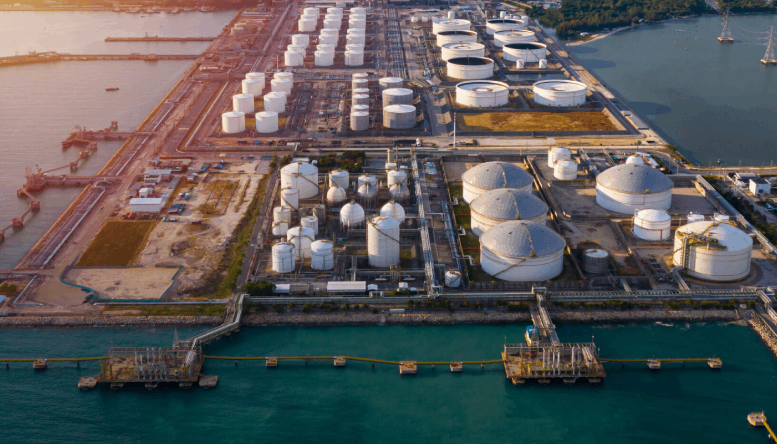Striking Gold: How to Launch an Oil Trading Business in Dubai
Dubai, with its strategic location, business-friendly environment, and robust infrastructure, is a prime hub for oil trading. The emirate offers numerous advantages for entrepreneurs looking to venture into the oil trading business. This guide provides a step-by-step approach to starting an oil trading business in Dubai, covering the legal requirements, market opportunities, and strategic considerations.
Why Choose Dubai for Oil Trading?
1. Strategic Location:
- Dubai’s geographical position at the crossroads of Europe, Asia, and Africa makes it an ideal location for global trade. The city serves as a gateway to key oil markets in the Middle East and beyond.
2. Business-Friendly Environment:
- Dubai offers a favorable business climate with low taxes, free trade zones, and streamlined regulatory processes. The government supports foreign investment and provides incentives for businesses in the energy sector.
3. Advanced Infrastructure:
- The city boasts world-class infrastructure, including ports, logistics facilities, and financial services. Dubai’s modern transport network and connectivity enhance its appeal as a trading hub.
4. Thriving Financial Sector:
- Dubai is home to leading financial institutions, trading platforms, and commodity exchanges like the Dubai Mercantile Exchange (DME), facilitating oil trading activities.
Steps to Start an Oil Trading Business in Dubai
1. Conduct Market Research:
- Begin with thorough market research to understand the oil trading landscape in Dubai. Analyze market trends, demand and supply dynamics, and key players in the industry. Identify potential clients, suppliers, and competitors.
2. Develop a Business Plan:
- Create a detailed business plan outlining your business model, target market, trading strategies, and financial projections. A solid business plan will guide your operations and attract potential investors.
3. Choose a Business Structure:
- Decide on the legal structure of your business. Options include:
- Free Zone Company: Offers 100% foreign ownership, tax exemptions, and simplified procedures. Popular free zones for oil trading include the Dubai Multi Commodities Centre (DMCC) and the Jebel Ali Free Zone (JAFZA).
- Mainland Company: Requires a local sponsor holding 51% of shares but allows for direct business within the UAE market.
4. Register Your Business:
- Free Zone Company:
- Choose a suitable free zone and register your business. Submit the required documents, including your business plan, passport copies, and proof of address.
- Mainland Company:
- Partner with a local sponsor and register with the Department of Economic Development (DED). Obtain initial approval, reserve your trade name, and submit the necessary documents.
5. Obtain Licenses and Permits:
- Acquire the necessary licenses and permits to operate legally. Key licenses include:
- Trade License: Issued by the relevant free zone authority or the DED for mainland companies.
- Oil Trading License: Specific to businesses involved in the trading of oil and petroleum products.
6. Set Up Office and Infrastructure:
- Establish a physical presence by setting up an office in a strategic location. Ensure your office is equipped with the necessary technology, communication systems, and trading platforms.
7. Open a Bank Account:
- Open a corporate bank account with a reputable bank in Dubai. Provide the required documentation, including your trade license, company registration details, and identification of shareholders.
8. Hire Qualified Staff:
- Recruit experienced professionals with expertise in oil trading, risk management, finance, and logistics. Skilled staff are crucial for successful trading operations and risk mitigation.
9. Establish Relationships with Suppliers and Clients:
- Build strong relationships with oil suppliers, refineries, and clients. Networking and partnerships are essential for securing favorable trading terms and expanding your market reach.
10. Implement Risk Management Strategies: – Develop robust risk management strategies to mitigate market volatility, geopolitical risks, and financial uncertainties. Utilize hedging techniques, diversify your portfolio, and stay informed about market developments.
Key Considerations for Success
1. Compliance and Regulation:
- Ensure compliance with all local regulations and international trading standards. Regularly update your knowledge of legal requirements and industry best practices.
2. Technological Integration:
- Invest in advanced trading platforms, market analysis tools, and data analytics to enhance trading efficiency and decision-making processes.
3. Market Intelligence:
- Stay informed about global oil market trends, geopolitical developments, and economic indicators. Access reliable market intelligence to make informed trading decisions.
4. Financial Management:
- Maintain strong financial management practices, including cash flow management, cost control, and investment planning. Secure adequate financing to support your trading activities.
Conclusion
Starting an oil trading business in Dubai presents lucrative opportunities, thanks to the city’s strategic location, business-friendly environment, and advanced infrastructure. By following a structured approach, conducting thorough research, and implementing effective risk management strategies, you can successfully navigate the complexities of the oil trading market and build a profitable venture in Dubai. Embrace the dynamic energy landscape, leverage Dubai’s robust trading ecosystem, and position your business for long-term success in the global oil market.







